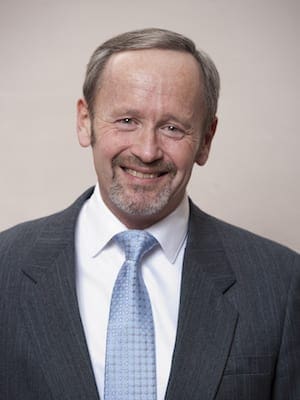The defining characteristic of the biblical prophets was not the ability to predict the future, especially not in the Nostradamus-type way that we tend to think of it in modern times.
Neither was their role primarily that of acting as the social conscience for ancient Israel, though they certainly did play this role.
The defining characteristic of biblical prophecy is the ability to imagine an alternative future to the one being played out according to the accepted thinking of the day, according to Old Testament scholar Walter Brueggeman.
In his book, “The Prophetic Imagination,” Brueggeman shares that the prophet sees what is but doesn’t accept that this is what must be; further, the prophet is able to imagine a what-could-be and vividly conveys that image so that others can see it as well.
Most important, while the pessimists, “realists” and defenders of the status quo dismiss the prophet’s vision as an idealistic fantasy that will never work in the “real world,” the prophet sees his or her vision not only as what could be, but also as what must be. And then actively works to bring it to pass.
The prophet and those who follow him form a sub-community within the larger community.
You won’t find a true prophet and his followers in the seats of power and wealth or among those who roll through life sheltered from the harshness of life.
Rather, they rally around a shared injustice, one that they might endure for a short time but is unbearable over the long haul.
The prophetic community is marked by a common past that is kept alive through stories and song, a hope that is not just longed for but actively pursued that unfulfilled promises will be met, and a means of communication that is distinctive, imaginative and deeply cherished.
Think of the civil rights movement of 50 years ago. There was the memory of the slave experience passed down through generations and embodied in story and song. There was the injustice of Jim Crow, the pain of chronic poverty and abuse, and the unwillingness to accept that this would always be.
There was also a shared hope, best embodied by Martin Luther King Jr.’s “I Have a Dream” speech that insisted that the promises made in our founding documents must be kept.
And there was a form of discourse distinctive to the African-American community and deeply cherished by it – black preaching, of course. King’s “I Have a Dream” is more sermon than it is speech.
If this sounds strange and unfamiliar, then that is an indication that we have moved outside of the tradition of the biblical prophets, which is particularly troublesome because it was within this stream that Jesus most identified himself.
Of all the roles assigned to him by his contemporaries – rabbi, priest, king, military leader – the role of prophet is the one that Jesus embraced.
He came preaching an alternative reality and an alternative future, which he called the Kingdom of God.
It was a vision of not only how things can be but also of how things must be on earth.
Christians need to understand and embrace this vantage point if we are going to continue to claim to be followers of Jesus.
The Christian life, discipleship, following Jesus, whatever you want to call it, is about pursuing Jesus’ alternative vision for the world.
In that vision is found these core beliefs:
- That no child should be hungry, poorly clothed or uneducated
- That no person should be excluded from the community of love and acceptance
- That the earth’s abundance, which belongs to God, should be shared by all according to the Creator’s will, not according to the desires of those who don’t know when’s enough
The Kingdom of God is more than this, but it is at least this.
When we equate the Kingdom of God solely with life in heaven after death, we can envision all of this coming true, but when we realize that the Kingdom of God is God’s plan for the world, it’s hard to see it.
After all, this world is pretty messed up and it’s hard to see how anything can be done with it.
That is why it takes faith to be a follower of Jesus. It’s easy to believe that Jesus can get me to heaven when I die; that really doesn’t take that much faith.
To believe in a world where peace and justice reign is much harder. Therefore, our prayer must be, “I believe; help my unbelief!” (see Mark 9:24).
 Larry Eubanks is the pastor of First Baptist Church of Frederick, Maryland. A version of this article first appeared on his website and is used with permission. You can follow him on Twitter @EubanksLarry.
Larry Eubanks is the pastor of First Baptist Church of Frederick, Maryland. A version of this article first appeared on his website and is used with permission. You can follow him on Twitter @EubanksLarry.

